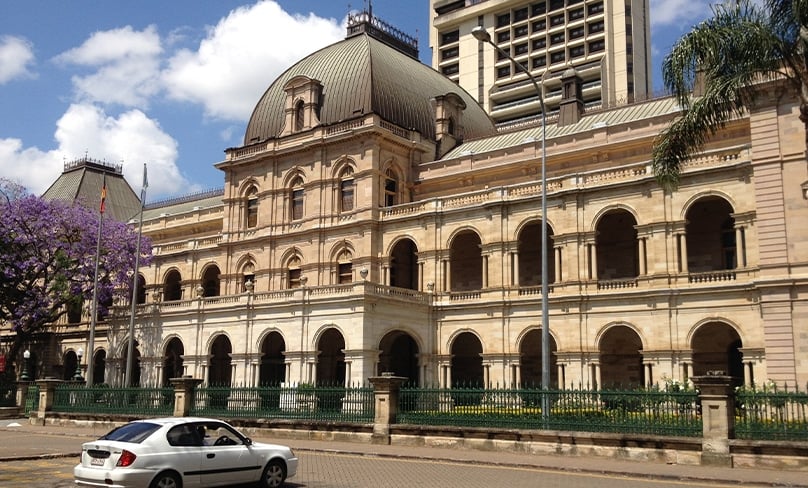
In the week that just passed, South Australia became the fourth Australian state to legalise euthanasia and assisted suicide.
Its proponents want you to think that these practices are long overdue, but it is important to remember that there are only six other countries in the world where euthanasia and assisted suicide are both legal. There are a handful of places where assisted suicide only is legal, but for about 95 per cent of the countries in the world, the thought of state-sanctioned killing is out of the question.
These laws don’t make Australia progressive; rather, they make us regressive.
“the Queensland bill intends to leave no room for faith-based hospitals and aged care facilities to opt-out of the deathly regime.”
Queensland is the next state likely to legalise euthanasia and assisted suicide, but before these laws are passed, a veneer of a public consultation into laws drafted by the Queensland Law Reform Commission needs to occur.
I say ‘a veneer of a public consultation’ because, despite submissions to the current Health and Environment Committee into the provisions of the bill not closing until 2 July, public hearings continuing till 16 July, and the Committee’s final report not being due until 20 August, senior members of the Palaszczuk Government have already made up their minds on one of the bill’s most controversial provisions.
Unlike the laws in Victoria, Western Australia, Tasmania and South Australia, the Queensland bill intends to leave no room for faith-based hospitals and aged care facilities to opt-out of the deathly regime.

Under the bill, hospitals and aged care facilities that do not participate in the euthanasia or assisted suicide process must still allow doctors or other medical professionals who do to have access to the premises, delivering or even administering the lethal drugs on site in some circumstances.
This is an extremely contentious provision because not only does it constitute an attack on religious freedom pursuant to which no faith-based institution is allowed to be completely euthanasia free, it also means that individual patients or aged care residents who would prefer to live or be treated in a facility that was a euthanasia-free zone no longer have that option.
“The operators of plenty of government-run hospitals or aged care facilities would have no problem with lethal drugs being administered to their patients or residents on site, but this provision attempts to undermine the ethos of those facilities that would.”
This proposed provision goes much further than what is needed for euthanasia access. The operators of plenty of government-run hospitals or aged care facilities would have no problem with lethal drugs being administered to their patients or residents on site, but this provision attempts to undermine the ethos of those facilities that would. It also appears to be without precedent in those handful of countries around the world that permit this barbaric practice.
But despite its novelty and controversy, and notwithstanding the Parliamentary Committee is yet to hear all the submissions about the overreach it represents, Deputy Premier Steven Miles has already made up his mind that the provision is here to stay.
The Deputy Premier told the Queensland Media Club this week that “it’s important the voluntary assisted dying scheme provides all Queenslanders who are suffering and dying with equal end-of-life choices, irrespective of where they live.”
By “equal end-of-life choices,” the Deputy Premier is only referring to lethal drugs, because he is not nearly as concerned with equal access to any other type of end-of-life care, like palliative care, where Queensland only has half the number of palliative care specialists recommended to meet the demand for such care.

He also doesn’t seem too concerned about ensuring those who live in regional or remote parts of the state – many of them First Nations peoples – have access to even the most basic of healthcare.
But I digress.
The problem isn’t only about conscientious or faith-based objection, it’s also about the proper care of patients.
“What the bill does in practice is allow those who aren’t routinely involved in the care of a patient or the management of their illness to be the ones who make a decision about their prognosis and prescribe them lethal drugs.”
What the bill says is that if a hospital or residential aged care facility doesn’t provide assessments for euthanasia or assisted suicide, then it has to allow onto its premises those who do. What the bill does in practice is allow those who aren’t routinely involved in the care of a patient or the management of their illness to be the ones who make a decision about their prognosis and prescribe them lethal drugs.
These types of practices necessitate that those without any connection to the hospital or residential aged care facility be the ones who make the life and death decisions. But the Deputy Premier has made up his mind.
Could it be that the coercion of the practices in faith-based institutions is prioritised in Queensland, even if it compromises patient care?
Related:
